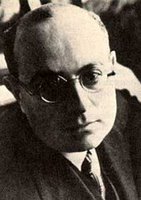Adorno and the Panopticon
 I completed (forced an ending, that is) my latest piece Panopticon [working title]. It's quite a surreal work, a collage cobbled together from vinyl albums sourced from local charity shops here in Belfast. It is unique in that it has no drive, no real intention, no narrative. It just is . . . there. When I began the PhD process I was primarily interested in how music would drive narrative or, in some way, assist it. [I had a preoccupation with form as well, but leave that for another posting!]
I completed (forced an ending, that is) my latest piece Panopticon [working title]. It's quite a surreal work, a collage cobbled together from vinyl albums sourced from local charity shops here in Belfast. It is unique in that it has no drive, no real intention, no narrative. It just is . . . there. When I began the PhD process I was primarily interested in how music would drive narrative or, in some way, assist it. [I had a preoccupation with form as well, but leave that for another posting!]However, due to the result of this latest work, I wonder if music (and perhaps all media) have abandoned the ability to encompass narrative. Perhaps we live in non-narrative times; do we no longer need a flow of ideas, a logical conclusion, a space for considering what we have done, what has occurred? Further, I have considered that narrative, in any work, is the result of the process of working through the piece, the material, the stuff . . . the narrative is, in fact, the story of the composer's work, a record of the creative act. A personal experience, this is a 'here is the material and this is what I have done with it' story. Has narrative finally fallen to technique?
I was reading Adorno last night. He has some interesting ideas about music as regards production, mass-production and meaning. In Noise: the political economy of music he writes:
Today, music emerges above all in its commodity component, in other words, as popular song, commercialized by radio. The remainder of production, learned music, is still inscribed within the theoretical line of representation and its crisis; it constitutes, in appearance, a totally different field from which the commodity is excluded and in which money is not a concern. But in reality it is not that at all: the rupture of the code of harmony leads to an abstract music, noise without meaning.This 'noise without meaning' and 'the rupture of the code of harmony' are ideas which reflect the state of this latest work: the work is comprised of meaningless, mass-produced vinyl albums. In re-composing with these materials I developed a work of non-narrative or, perhaps, a work of meaninglessness. Adorno continues:
In contrast to previous centuries, popular music and learned music, the music of the above and the music of below, have broken their ties with one another, just as science has broken its ties with the aspirations of men. Nevertheless, their subterranean connections remain very deep. They are both in effect products of the rupture of the system of representation, and on of the most interesting problems in the political economy of music is interpreting the simultaneity of the fracture in meaning, and of the emplacement of repetition or the absence of meaning.OK, so a 'rupture of the system of representation'. As stated before, the resulting work was quite surreal and abstract, not really full of meaning -- or narrative for that matter. So, I understand now what is happening to music here at the end of time . . . or, as Adorno puts it:
A fracture shattering all of political economy and heralding the emplacement of repetition, its lacks, and its coming crisis.Coming crisis, eh?
Note: I would probably also look toward Russolo to establish my ideas on sound (timbre) and form, Adorno for narrative and form.


0 Comments:
Post a Comment
<< Home